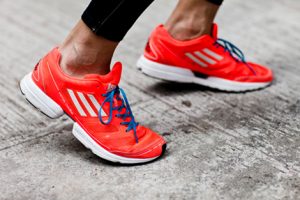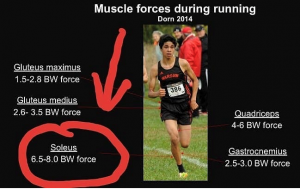Run Faster For Longer With Less Chance Of Injury
The right strength program can improve your performance as well as reduce your risk of injury.
At Central Performance we see a lot of runners coming in either for physio treatment or running training with our running coach/physio superstar Ben Liddy. We know that runners love to run and can be like a bear with a sore head when they can’t run due to injury. One great, and often overlooked, way to both improve running performance as well as reduce the risk of injury is to add some strength training to your running training.
Traditionally it was believed that strength training won’t improve running performance as lifting weights will make people bulky and slow. However there is now good evidence that strength training improves running performance by increasing running efficiency. An increase in running efficiency means you to use less energy while running.
Strength training helps improve running efficiency by increasing the rate of force development (RFD) of a muscle. RFD is how quickly a muscle can produce force. The higher the RFD the quicker a runner is able to spring off the ground, reducing the ground contact time and therefore reducing the amount of energy they use.
What Type Of Strength Training Is Best For Runners?

The best types of resistance exercises for running are compound exercises such as deadlifts, squats and lunges. These exercises use almost all the lower body muscles in a coordinated fashion.
Research shows that weight training twice per week causes significant improvements in running efficiency and performance. It has also shown that for competitive runners reducing weight training to once per week during the competitive season maintains the improvements made with twice per week.
Can Strength Training Also Reduce My Injury Risk?
Strength training also helps to reduce the risk of injury to runners and all other athletes. A recent review in the British Journal of Sports Medicine showed that resistance training can lead to a 66% decrease in sports injuries and a 50% decrease in overuse injuries. The below picture does a good job illustrating why strength training is important injury prevention for runners.

Tendinopathies are a very common type of running injury. They occur when the amount of load going through a tendon overloads the tendon’s ability to recover from it. Commonly occurring tendinopathies for runners are hamstring and achilles tendinopathies as both the hamstrings and calf muscles are extremely important in running. One of the best ways to improve a tendon’s capacity to handle load is by resistance training. Heavy resistance training provides a beneficial stimulus to tendons to help them build strength, remodel and allow them to adapt to high volumes of load put through them during running.
We’ve Got Runners Covered
The Central Performance Running Centre helps runners of all abilities improve their performance and reduce their risk of injury. Our strength coaches and exercise physiologists can get you on a personalised program that is effective, efficient and tailored just right for you.
You can book online or call us on +61 2 9280 2322 for more info.
This post was written by Hugh Campbell, our senior Exercise Physiologist. He has extensive experience and has attended numerous post-graduate courses on running biomechanics and the role of strength training in runners.

